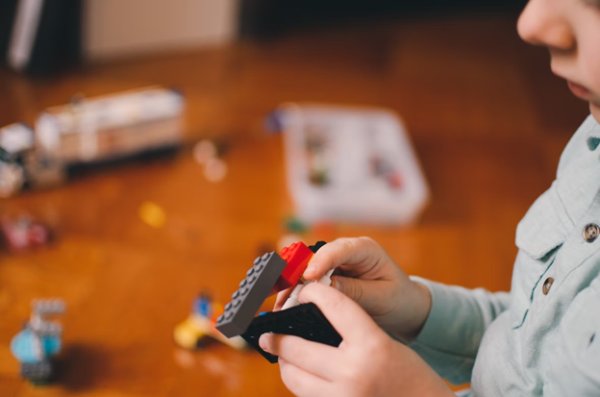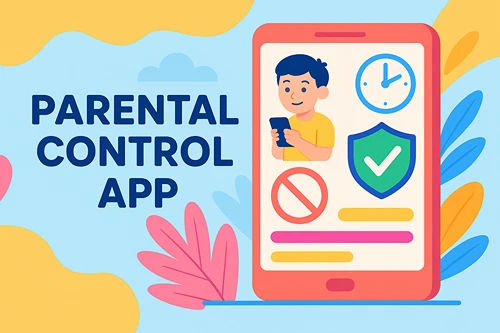A Useful Guide That Will Help Your Kids Sleep Better at Night
Parents always want what’s best for their children, and that includes ensuring they get a good night’s sleep. Lack of sleep can lead to all sorts of problems for kids, including poor performance in school and trouble focusing. In this article, we will discuss some tips that can help your kids get the sleep they need.
Follow these guidelines and your children will be sleeping like babies in no time!
A Consistent Bedtime Routine
One of the most important things you can do to help your children sleep better at night is to establish a bedtime routine. A consistent bedtime routine will signal to your kids that it’s time to wind down and go to sleep. Bedtime routines can vary from family to family, but should generally include some calming activities such as reading or taking a bath.
For example, you might have a bedtime routine that looks something like this:
- Give your child a bath
- Put on pajamas
- Brush teeth
- Read a story
- Turn off the lights and say goodnight
If you can stick to this same routine every night, your children will start to associate certain activities with sleep and will be more likely to fall asleep quickly.
Try a sound machine
If your kids are struggling to fall asleep, a sound machine can be a godsend. The white noise from a sound machine can help to drown out any outside noise that might be keeping your child awake. There are all sorts of different sound machines available on the market, so find one that fits your needs and budget. On the other hand, you can also try sound-blocking earplugs that may help even more with improving sleep quality right away. The important thing is to find something that works for your family. Once you have found a method that appears to work from the beginning, you should stick to it.
Get them moving during the day
It might seem counterintuitive, but one of the best things you can do to help your kids get sleep is to make sure they get plenty of exercise during the day. Exercise will help to tire them out and make it easier for them to fall asleep at night. Just make sure that you don’t allow them to exercise too close to bedtime, as this can have the opposite effect and make it harder for them to fall asleep.
Additionally, when your kids are getting their exercise during the day, make sure they are getting some exposure to natural sunlight. This will help to regulate their internal clocks and make it easier for them to fall asleep when it’s time for bed.
Creating a peaceful sleep environment
Another important factor in getting your kids to sleep well at night is to create a comfortable sleep environment. This means making sure the room is dark and quiet and that the bed is comfortable. If your child’s room is too bright or noisy, try using blackout curtains or a white noise machine to help them sleep.
For a child with a restless mind, a weighted blanket can also be helpful in promoting relaxation. And to further enhance relaxation and comfort, consider adding a self-warming eye mask to their bedtime routine. The gentle warmth can help soothe tired eyes and promote a sense of calm.
It is a well-known notion that children who are not comfortable will wake up more frequently during the night. Keep the room cool; too much or no heat may also disrupt sleep. The bottom line is that you want your kid to feel as comfy as possible when they’re attempting to nod off.
Invest In A Quality Bed
In addition to creating a peaceful sleep environment, investing in a quality bed is also crucial. A good mattress and pillow that are suitable for your child’s age and size will make all the difference in their sleep quality.
Make sure to involve your child in the process of selecting the right bed, so they feel comfortable and excited about it. If you have two children sharing a room, investing in a bunk bed for kids can also be a great option. It can allow them to have their own space while still being in the same room. Bunk beds come in various styles and designs, making it easy to find one that fits your child’s interests and personality.
Limit screen time before bed

It’s important to limit your child’s screen time before bed. This means no TV, computers, or phones in the hour leading up to sleep. The blue light from screens can disrupt the body’s natural sleep cycle, making it harder for kids to fall asleep. If you are struggling to get your child to put down their devices, try setting a rule that all screens must be turned off at least 30 minutes before bedtime. Otherwise, consider investing in a pair of blue-light-blocking glasses that can help to reduce the effects of screen time on sleep.
Encourage them to sleep on their back
One of the best things you can do for your child’s sleep is to encourage them to sleep on their back. This position allows the head, neck, and spine to rest in a neutral position and can help to prevent some common problems like ear infections, headaches, and even SIDS. If your child is used to sleeping in another position, it might take some time to adjust, but it’s worth it for the long-term health benefits.
It may be difficult to get your kids to sleep, but it’s essential for their health and development. You can assist your children to obtain the excellent rest they require to flourish by following the recommendations in this article.





